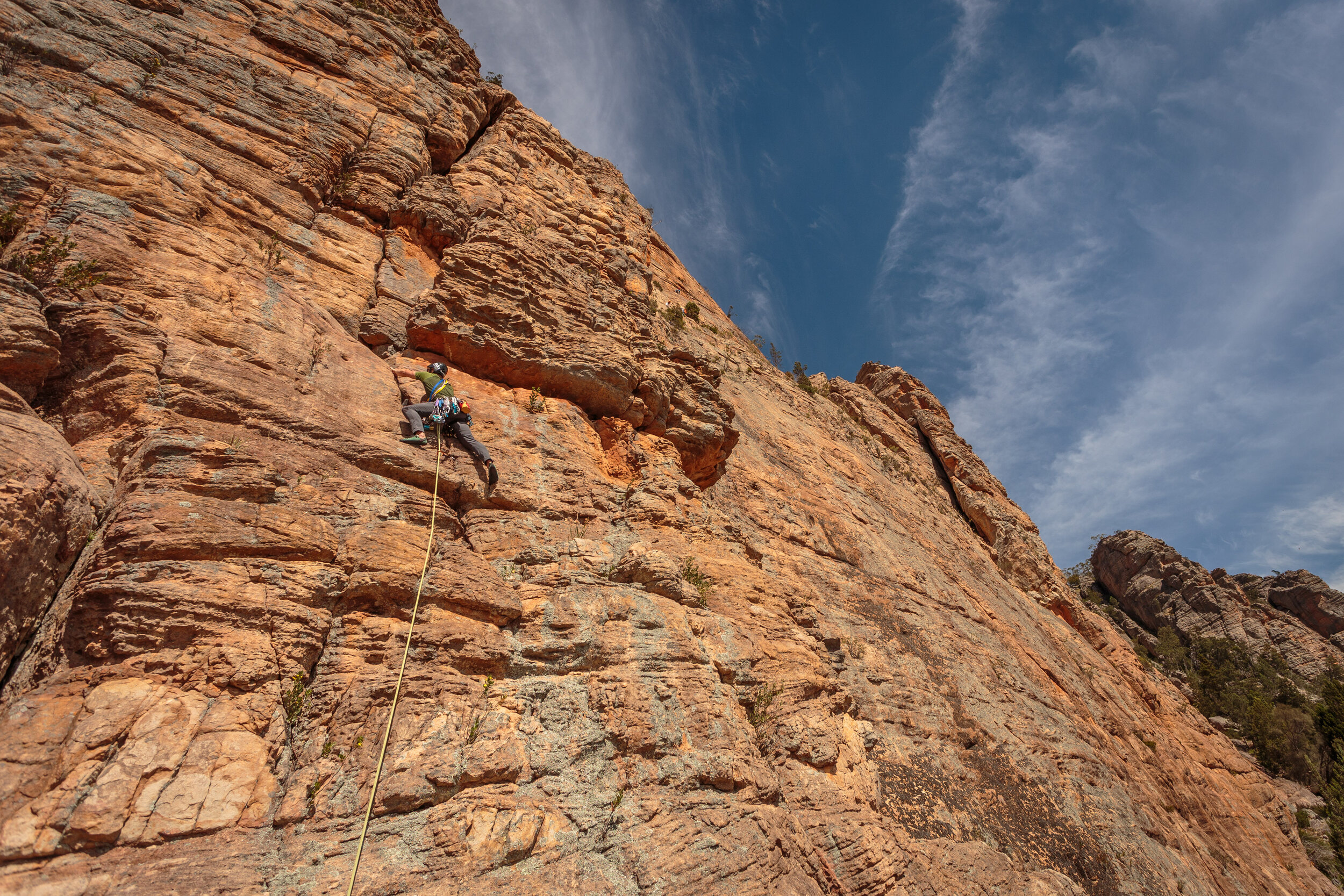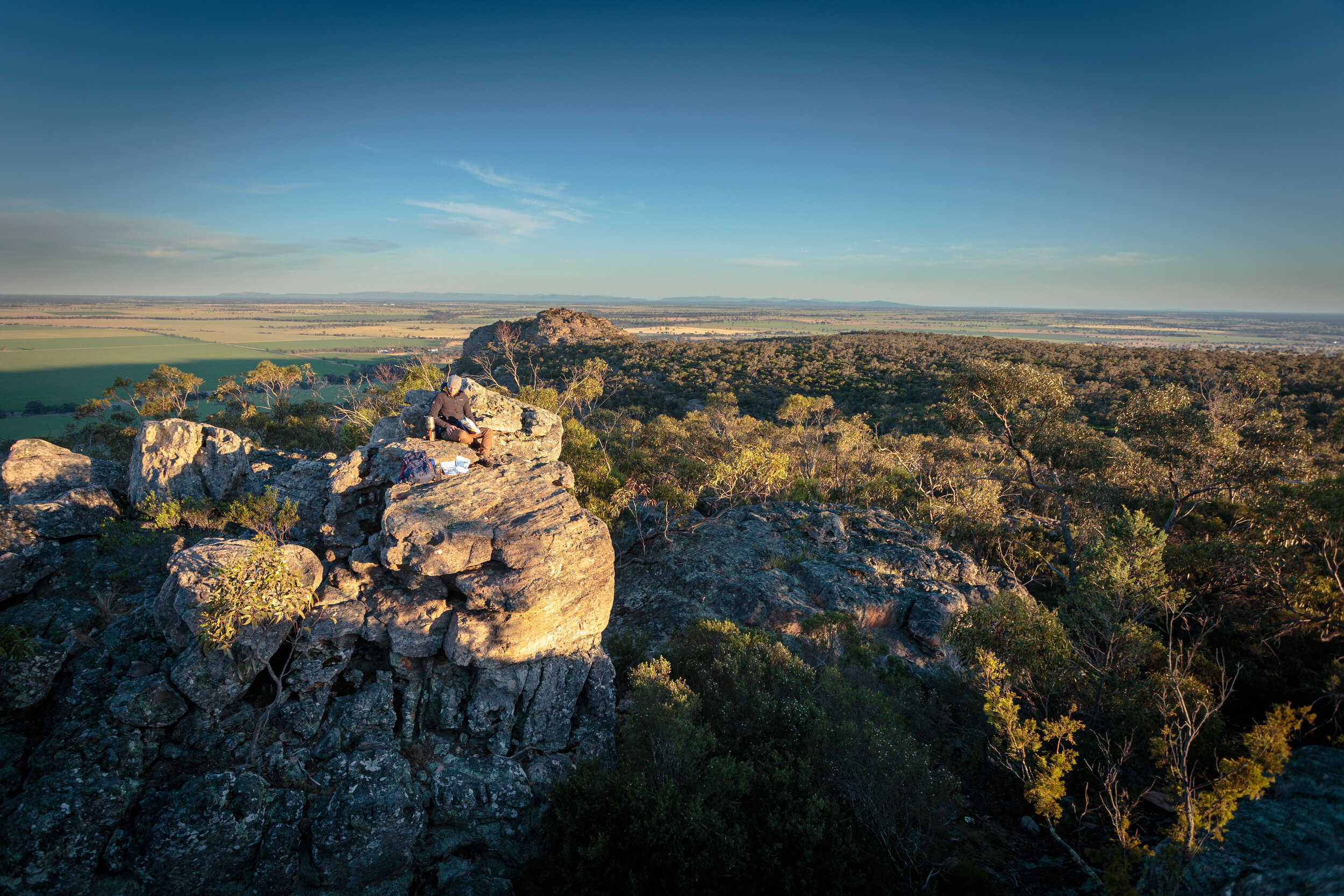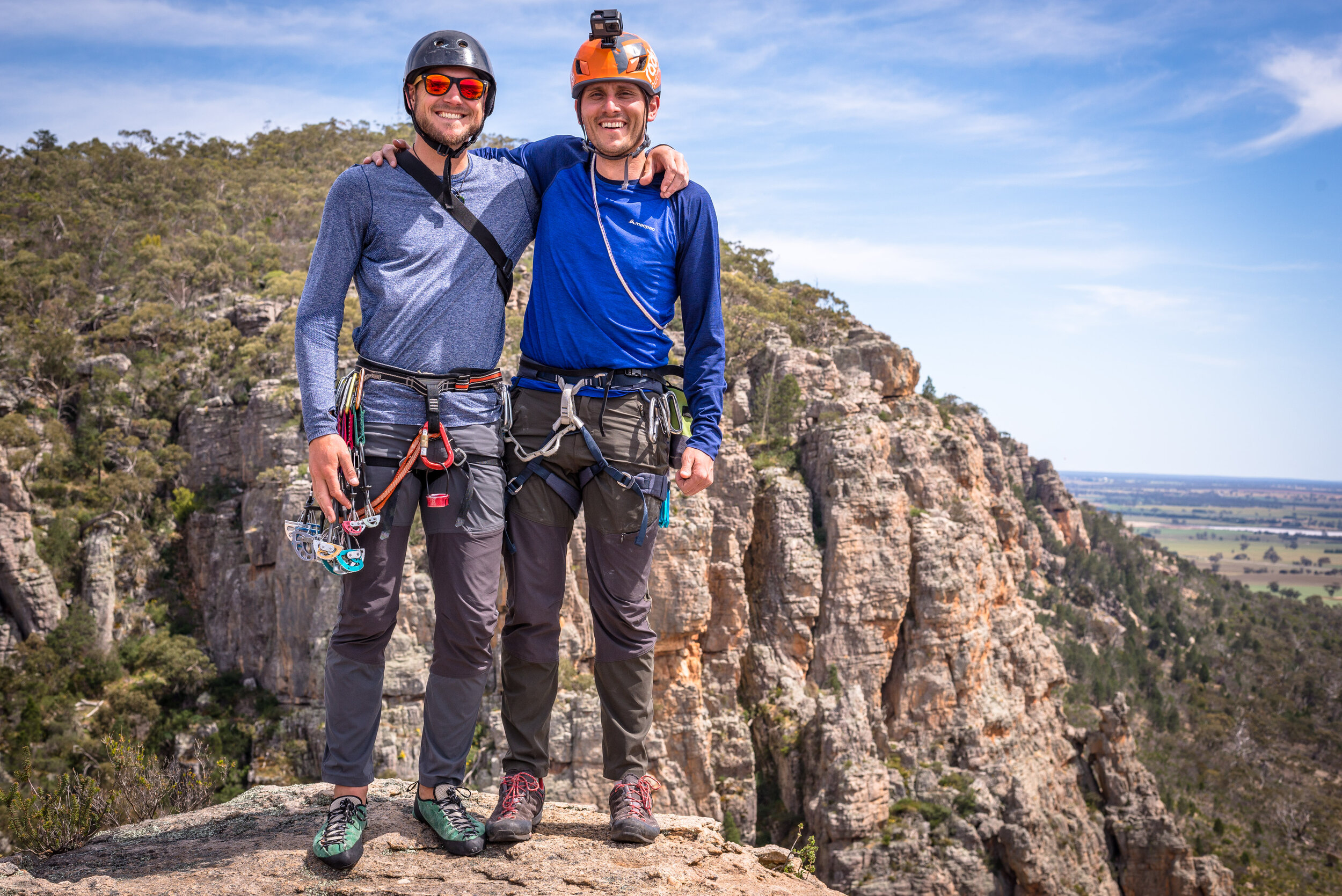I Need Goals
Nick Allen climbing at Mt Arapiles, Australia.
“This experience, as well as many others over the years, taught me that I do best when I have a goal to work toward. ... [T]o stay motivated through the ups and downs, I need goals that I’m passionate about and inspire me. Goals give me hope.”
My climbing buddy Jake and I had just arrived at Mt Arapiles in Australia — a rock-climbing mecca. I was surprised when I first saw the red-orange escarpment rising out of flat Australian farmland. As a climber, the sight of those 20-million-year-old cliff faces was magnetising. I couldn’t help but feel a dizzying sense of potential in the rock’s amazing features and formations. It is the rock, after all, that makes the Arapiles one of the world’s premier climbing locations.
Arriving at the base of the mountain, I must admit to feeling intimidated by the size of the faces. They were much larger than anything I’d climbed before. Nevertheless, I was excited to be there. For me, climbing is a deeply enjoyable sport. Apart from the fact that climbing gets you outside, I love the fact that it requires you to be completely present in the moment. Pain and problems melt away, leaving just you and the rock: it’s a magic feeling and that’s why I was excited to be there.
Some years ago, I was given the diagnosis of primary progressive multiple sclerosis. At that time, I struggled to walk: my balance was poor, I lacked strength and dexterity in my legs, arms and hands, and struggled with fatigue, amongst other things. Over the next five years, I spent over 2,000 hours at the gym and I made a lot of progress with the support of a specialist trainer.
However, in the six months leading up to the trip to Australia, I began experiencing new, troubling problems with my legs. With some muscle groups were not working correctly, and these problems have been challenging to address. Regaining the strength and control required for a trip like this requires a lot of work. I’d spent hours doing leg exercises, and many more hours at the local YMCA climbing wall, practising my moves. My regimented lifestyle revolved around training, eating healthily and quality sleep.
Although training at the gym and climbing wall is hard work, it is also a joy when I have a goal. Building strength and buoyed by a sense of progress toward the goal, my training gives me a sense of agency in the face of the disease. Far from being powerless against MS, climbing gives me a way to push back against it.
This experience, as well as many others over the years, taught me that I do best when I have a goal to work toward. The process of regaining and maintaining mobility takes a lot of work, and to stay motivated through the ups and downs, I need goals that I’m passionate about and inspire me. Goals give me hope.
Research suggests that many of us with chronic health conditions find hope through goals. In their article, Madan & Pakenham (2014) state: “Hope may be fostered through identifying valued and personally meaningful goals, defining them in clear measurable terms, and identifying multiple potential avenues through which goals can be attained.”
However, dream trips and exciting goals often cost money, and this is an obstacle. It’s because of this that I set up the Mastering Mountains. Our grants are designed to help people cover the costs associated with goals and objectives that they are excited about. But more than anything, I want my story, combined with the support of Mastering Mountains, to give you hope.
Follow my journey on Instagram



Bibliography:
Madan, S., & Pakenham, K.I. (2014). The stress- buffering effects of hope on adjustment to multiple sclerosis. International Journal of Behavioural Medicine, 21, 877-890.

